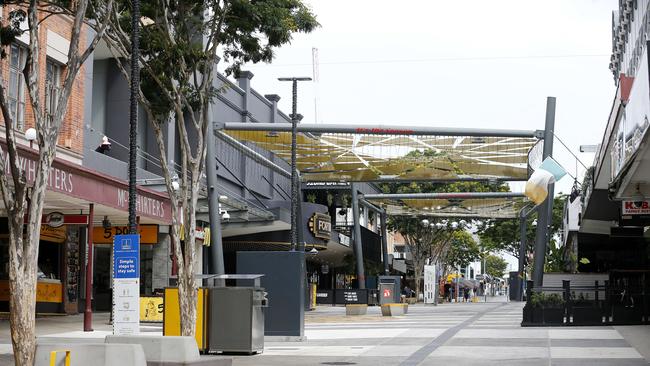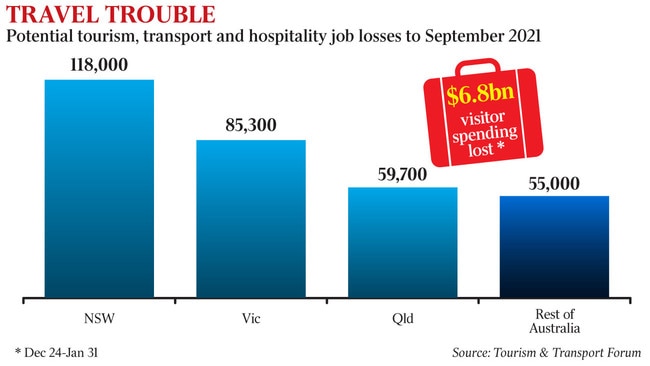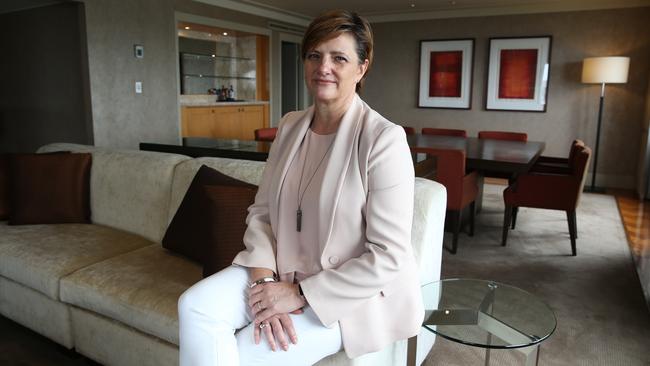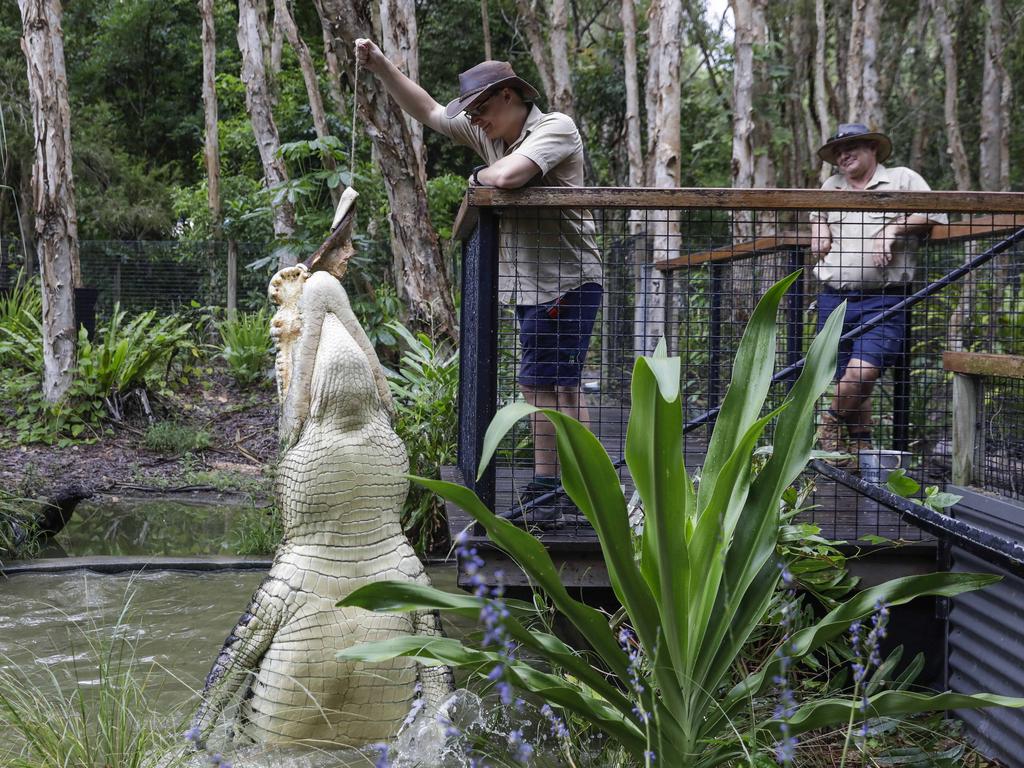Snap decisions leave $7bn bite in tourism
Border closures imposed by some premiers have cost tourism businesses nearly $7bn in just five weeks.

Border closures imposed by some premiers have cost tourism businesses nearly $7bn in just five weeks during what is usually the industry’s busiest trading period, sparking renewed appeals for the states to open up … and stay open.
Between Christmas Eve and the end of January, Australians are expected to spend $6.8bn less than the normal monthly average of $13.9bn, after Sydney’s northern beaches and Greater Brisbane were placed into lockdown, state borders were slammed shut and families cancelled their summer holiday plans in droves.
The tourism industry is consulting with the Morrison government on a limited extension of JobKeeper, while the hospitality sector is in talks with Treasury about ongoing financial assistance for accommodation and food services businesses once the $90bn pandemic wage subsidy scheme ends on March 28.

In yet another blow to the tourism industry, new modelling predicts there will be 318,000 job losses across the tourism, transport and hospitality sectors between April and September if JobKeeper ends as planned.
NSW would suffer the brunt of the job losses, with 118,000 positions disappearing. The modelling also predicts another 85,300 job losses in Victoria, and 59,700 in Queensland.
An estimated 506,000 positions have already gone since 2019, meaning an industry that had 1.125 million jobs before the pandemic could, in the worst-case scenario, be left with just 300,000 jobs by the end of the year.
The “sobering” figures, produced by economic consultants Stafford Strategy for the Tourism and Transport Forum — the peak body representing the country’s major hotel chains, airlines and tourism operators — comes as Australia recorded a fifth day with no community transmission out of the last six days.
There are approximately 186 active coronavirus cases in Australia, and just one case in ICU.
The sudden closure of state borders, the emergence of a number of coronavirus clusters and the sharp upswing in cases overseas helped push consumer confidence down 4.5 per cent in January, according to the Westpac Consumer Sentiment Index.
TTF chief executive Margy Osmond said border closures were the No 1 factor contributing to the massive loss in visitor spending on domestic tourism in late December and January.
“It’s the uncertainty around the border closures and the actuality of the border closures, combined with the manifest loss of confidence reflected in Australian travellers,” she said.
“Maybe four to five months ago there was enormous pent-up demand. People wanted to travel, they were desperate to see friends and family, but the borders have made that virtually impossible. I’m not sure that demand exists (anymore) — their confidence is significantly rattled.
“I can’t see how the figures could be more sobering. This really sums up the dangers facing the industry, and it also makes quite clear what the value of the industry is to Australia.”
After health chief Brendan Murphy and Chief Medical Officer Paul Kelly warned the international border would likely not reopen in any substantial way until next year, Australian Industry Group chief executive Innes Willox declared that state border closures were a “job killer”.
“Border closures affect more than just the tourism sector because the loss of tourists means that entire regional economies suffer,” Mr Willox said.
“Our borders need to be open to get our economy moving in a sustainable way. Without open borders, business and consumer confidence will always suffer. As long as there is a threat to close borders, our economy will struggle to gather real momentum.”
InterContinental Hotels Group managing director for Australasia and Japan Leanne Harwood said the company had hotels booked at 70 to 90 per cent occupancy in the lead-up to Christmas. But when borders closed following the outbreaks in Sydney and Brisbane, the hotels and resorts were “absolutely decimated overnight”.
“We had one resort in Queensland that went from a month of looking like it was going to do 90 per cent down to 20 per cent occupancy,” Ms Harwood said.

“Every single time one of these borders closes, our businesses are directly impacted. It just jeopardises all of our staff and their jobs. Now in 2021 there are all indications the international borders won’t open. While we absolutely support the focus of the government to keep Aussies safe, that means even more so now than ever it’s absolutely critical … we need to have those domestic borders open.”
Stafford Strategy estimates domestic visitors will spend $2bn less per month on overnight trips from January onwards, noting the tourism industry has also lost most of its $4bn monthly income from international travellers.
“If we are going to focus on the recovery of the Australian economy, we have to make sure the industry is there to play its role in the recovery when the international borders open,” Ms Osmond said.
“That’s why these figures are important. They make it clear that without continuing government support the government will be denying itself a critical part of the longer-term recovery.”
Stafford Strategy managing director Albert Stafford said the $6.8bn in visitor spending losses did not include indirect damage.
“The full impact across the whole economy would be significantly larger,” he said. “Supplies of goods and services are affected. You’ve got no business travel, no conventions, no conferences.”





To join the conversation, please log in. Don't have an account? Register
Join the conversation, you are commenting as Logout